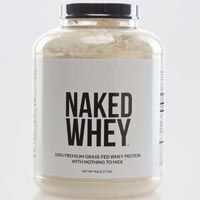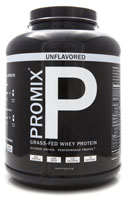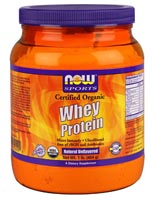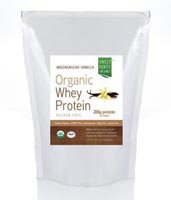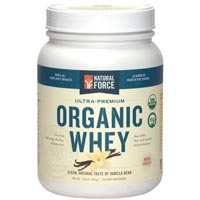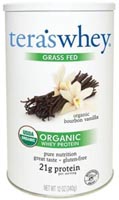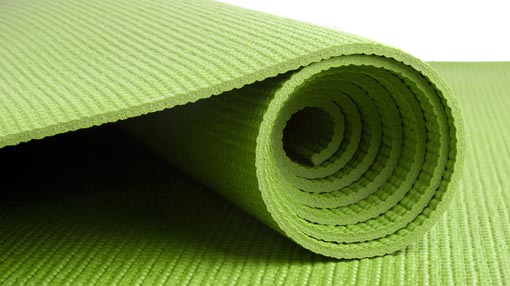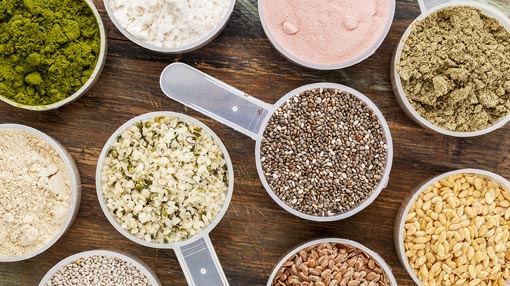Why whey you may ask? I find in my fitness assessment and nutritional coaching sessions that people tend to have a very set pattern of eating. Although in some ways we crave variety, in other ways we are resolutely focused on being the same. For example, you might change what you have for dinner but you probably almost always eat the same thing for breakfast. Even if you change what you eat for a meal, you probably eat about the same amount. In my observation people tend to eat about the same amount of protein for a meal even when they change what they eat. In other words we change the item but the portion size of protein remains about the same.
Battle of the Whey Proteins - Which Whey?
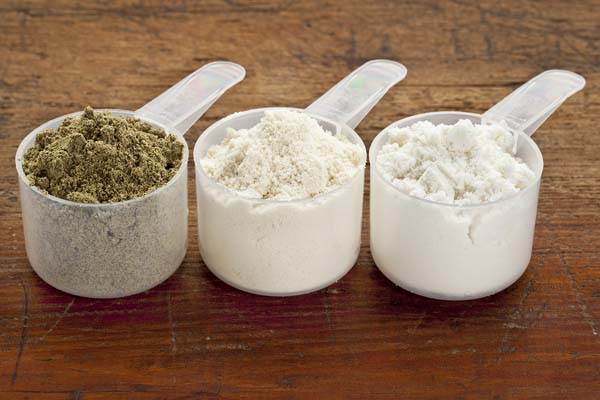
I know, I know, here I go about protein again, but it really is a topic worth talking about. In a previous post I shared with you the information from a study (video summary here) regarding optimal protein amounts and how getting at least 3 meals that contain 30 grams of protein (minimum of 90 grams of protein per day) is essential for protein synthesis. The creation of protein in our body funds the overwhelmingly large amount of protein based stuff within us from muscle cells to immune cells to hormones. Protein is essential to life and consuming enough protein in our diet is fundamental to optimal health.
Thus I have been looking at whey protein powder again. I have covered this topic on several occasions, here, here and here - yet I come back to it again having found some new and interesting things. Mostly what I have discovered are some new options in this arena that make using whey protein powder even healthier.
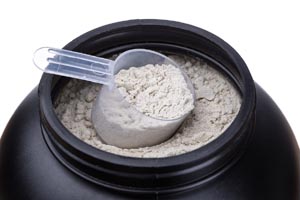
|
|
This seems to be human nature which makes it very difficult for us to make radical changes. We want to do what we are used to doing. When I am helping to coach someone to a better daily nutrition much of the time I am looking for ways to increase protein without the person feeling like they are eating more than they want. This is where a whey protein drink can come in handy. These protein powders have very limited calories on their own, usually just around 120 calories per a 30 gram protein serving (the calorie amount goes up if we mix the protein powder with something other than water). That small amount of calories makes this easy to consume, in other words, our body will not feel overly full. Drinking a protein drink instead of or in addition to the regular beverage we might have with a meal is easy. There is also the option of having the protein drink after a meal as a snack. The point is, in most people's busy and somewhat regimented eating life, a protein drink fits in and provides those needed protein grams easier than practically anything else.
Another bonus about whey protein is that it is very easily absorbed - more quickly passing from our stomach and being absorbed by our intestines than just about anything else. The biological value of whey protein is practically equal to egg which comes in with a 100% value, meaning that all of the protein available is absorbed. Compare this to something like a rice protein powder where only 55% of the available protein is absorbed and you can see the benefit.
There is very little likelihood of someone having trouble with whey protein. Even those who are lactose intolerant can typically handle whey because it contains none of the milk sugar (lactose) of the milk. Now if someone has an allergy to milk, they are allergic to milk protein so obviously they should not use whey protein.
Finding the Best Whey
A big concern of mine is that the foods we consume be as free from pesticides and hormones as possible. My quest to find organic foods keeps me constantly searching the market because 1. there are frequently new products arriving on the shelves and 2. the prices of organic foods (steep) keeps me searching for more reasonably priced options.
I never want the price of an organic food to turn me toward a non-organic option, but sometimes that is the case. It is especially the case in situations where the organic option is substantially more expensive than the non-organic one. That is unfortunately often the case in whey protein powders. Let me restate that. There is a 'gold standard' in whey protein regarding a designation called 'grass-fed'. Grass fed is where those lovely cattle get to graze on their natural food - grass. This differs from the cows that are fed cattle feed of grains, mostly corn, in that grass fed cows are getting to wander about living the cow dream of grazing in the open countryside while those grain fed ones are housed in barn stalls, a relatively small space.
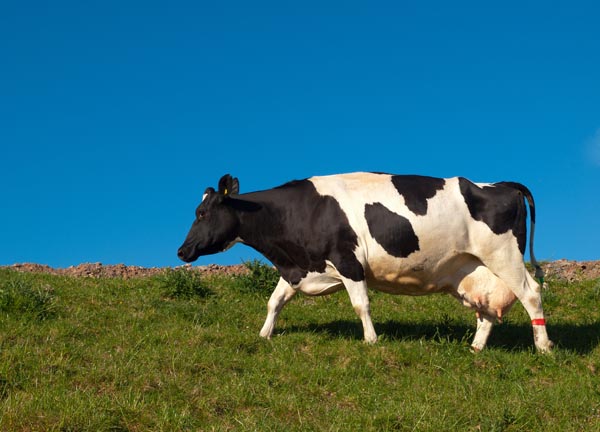
A modern dairy farm can have hundreds or even thousands of cows. The farm makes more money when the cows produce more milk. It is not considered cost effective for these cows to be sent out to pasture, so they keep them in stalls or in feed lots and feed them higher protein grain. The higher protein grain allows these cows to produce more milk. Yet, grain is not a cows natural food and a cow fed grain will produce a milk that is lower in essential fatty acids. Grain diets are also somewhat hard on a cow's stomach and can result in digestive issues and health problems that require treatment with antibiotics. We also have done a lot of genetic engineering to create a cow that is more adapted to eating grains. Different genetics means changes in milk protein and this can sometimes become an issue for those who are sensitive. If you want to know a bit more about the whole modern dairy situation I can recommend this enlightening article 'Inside the Milk Machine: How Modern Dairy Works'.
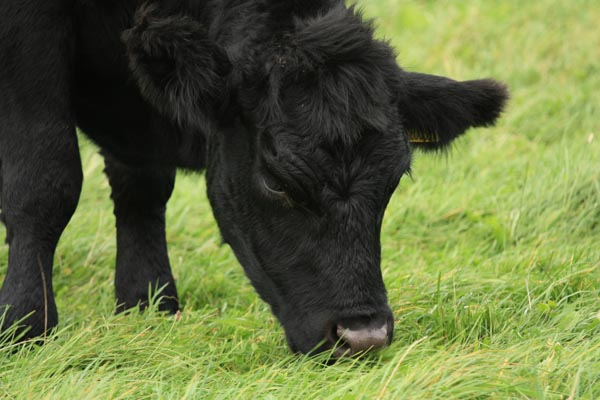
So, when you feed a cow grain, you change the milk into something less optimal in that the milk produced will have less fatty acids, something essential for our health. Some cows are fed organic grain and that is better than non-organic feed. Cows fed organically farmed grain will produce milk that can be considered organic as long as the cow was not treated with hormones or antibiotics. This is good and better than milk produced from cows who are given hormones to increase milk production and kept on a high level of antibiotics to deal with the issues of improper animal management.
Yet, the big picture should also require that we look at the life of the animal. Cows were made to wander about grazing on grass. They were not made to be cooped up in a stall with only room to eat and sleep. Cows living in these kind of conditions are typically less healthy than 'natural' cows. I would also think they have a less satisfactory life. How boring. To me it matters. I don't want the cows that provide my whey protein to be living a boring life. Cow karma aside, I also know that cows in this type of situation are under a lot of stress and those stress hormones will be transmitted into the milk. Factory farming is bad for cows and produces a product that is bad for us.
Evaluation of Whey Protein
How should we go about evaluating whey protein? There in my opinion are three main things to look at in regards to quality of the product.
- Is it free of hormones and antibiotics?
- Is it grass fed?
- Is it organic?
Price is another sticking point. If that best choice means I have to do without things like electricity and running water then I am going to be kinda reluctant to buy it. Just this morning I was in the local Whole Foods and scanning the whey protein choices they offered. The grass fed option they had was about $5 more for the same amount as the non-grass fed options. This brings the cost per serving up substantially. I was also recently in the local Vitamin Shoppe and scanning the literally ceiling high options of protein powders they offer. They did have some grass fed alternatives, but here again, they were substantially more for the same amount of non-grass fed. Thus in my evaluation of all the protein powders I am going to include an approximate cost per serving so you can budget appropriately.
How to find best prices.Time and again I find the best prices for products online. I know some do not do this type of shopping, but that is where the best deals typically reside, especially for the fancy organic grass fed whey options. My favorite site to visit is Amazon, but not just because they have the best prices - sometimes they do and sometimes they don't. They do however have product reviews by people who have actually used the products. This can be invaluable in evaluating a new product, especially if it is one that is costlier. The more reviews the greater the likelihood of them reflecting the true nature of the product in question. I read the bad reviews just as much as I read the good ones to get the best picture before I buy, even when I buy in person or online someplace other than Amazon.
Grass Fed Whey Choices
These are sourced from cows that are pasture raised and grass fed. They are not treated with hormones or BST (bovine stimulating hormone). Although not organic these choices are very close to organic but do not meet all the 'organic' designation requirements.
Naked Whey - Soy Free, Gluten Free, GMO Free, and Growth Hormone Free grass fed from California. This offers 25 grams of protein per two scoops. For a 30 gram serving I calculated the cost to be about $1.43.
ProMix Grass Fed Whey - Pure Whey Derived from the Milk of Grass-Fed, Hormone and Antibiotic-Free Cows (certified rBST-free) . This offers 25 g of protein per 2 scoops. For a 30 gram serving I calculated the cost to be about $1.27.
Organic Whey Choices
These are from cows fed with organic feed. There is no use of bovine growth hormones to stimulate animal growth or milk production. These farms have gone through the steps to be certified organic.
Now Organic Whey Protein - Organic concentrate. Offers 19 grams of protein per scoop. For a 30 gram serving I calculated the cost to be about $2.46.
Organic Whey Protein - Organic concentrate from US sustainable farms. Offers 16 grams of protein per 4 tbsp. For a 30 gram serving I calculated the cost to be about $4.41.
Organic and Grass Fed Whey Choices
These cows are never treated with antibiotics nor hormones. They are grass fed on organic pastures. These are from farms in California.
Natural Force ORGANIC WHEY Protein - Grass fed and certified organic concentrate. This one offers 24 grams protein per one scoop and I could only find vanilla flavored which is sweetened with stevia. For a 30 gram serving I calculated the cost to be about $4.14.
Tera Whey - Grass fed certified organic concentrate. This offers 22 grams of protein per 2 scoops. For a 30 gram serving I calculated the cost to be about $2.94.
Which Whey Wins?
This was actually a pretty interesting examination because in many ways these products are the same. All of them are concentrate forms of protein versus isolate forms, so they will absorb in the body the same. All but one offer an unflavored version which meant they all had very low sugar per serving, about 2 grams of sugar in most cases.
Two of these contenders are grass fed, but not organic, at least by the rigorous organic standards. Both of them are free of hormones and antibiotics. The cows graze on pastures where the grass is probably free of chemicals, but since organic standards are very particular, we cannot call these organic. But they are very close.
Two of the contenders are organic, but not grass fed, which although good, means the whey will be missing the naturally occurring fatty acids from grass fed animals. Yet,we are also in this organic cow situation, not sure how the cows are housed, in other words are these cows confined in stables and thus not having the most natural cow life?
The final two contenders are the grass fed organic, which overall has very few choices. The two I listed were the only ones that were both not treated with any hormones or antibiotics and also pastured on certified organic grasslands. Apparently a rare thing to find. These two, Natural Force and Tera would be the most pure in regards to organic whey, the most appropriate in regards to naturally occurring fatty acids in the grass fed cows and also the most natural and happy cow sort of life.
Overall winner
Since they are so close in many other ways, cost is going to be a big factor. This is where things got tricky. I don't know if they make it hard on purpose or not, but in trying to compare these products one to another it required that I do some math. Each one of these protein powders had a different serving size from 16 to 25 grams of protein per serving which was typically two scoops. It was obvious the scoops were different sizes because the weight of the servings ranged from 20 to 32 grams per scoop. First I had to figure out the number of 30 gram portions for each whey protein product. Then I figured out how much it cost for one 30 gram serving. The prices ranged from $1.32 per serving up to $4.41 cents per serving. That is quite a difference. It became clear that the non-organic grass fed were at the lower cost and the organic were higher in cost. That makes sense given smaller farms and natural farming methods. If price is a consideration for you I would say that choosing the grass fed versus organic would be the better money spent. Yet there was a clear winner even with price consideration.
1st place: Tera Whey wins hands down in both purity (organic), nutrition (grass fed), and cost. In the group of 6 it was only the 4th highest price, coming in at around $2.95 for a 30 gram protein serving.
2nd place: This is a tie for Pro Mix and Naked Whey for nutrition (grass fed) and cost with both coming in at less than $1.50 per 30 gram protein serving.
3rd place: It is a tie with NOW and Natural Force. NOW although organic, is missing the nutritional element obtained from grass fed and costs about $2.50 per 30 gram protein serving. Natural Force, although organic and grass fed costs over $4 for its 30 gram protein serving.
Last place goes to Organic Whey because although organic, it was missing the nutritional element from grass fed and it cost the most at nearly $4.50 per 30 gram protein serving.
You may draw different conclusions on the second and third categories and maybe things like taste of these would come into consideration if we were doing a taste test. If organic means more to you than grass fed then you would probably change who your rated as in second place. If price is your greatest consideration then you may choose to forgo the organic choices and focus soley on the grass fed options. I think the prices I found on line were good to average, but of course prices can change. I can tell you that it is harder to get as low of price for these products in the stores as I have found on line, unless there is a specific sale or you find a coupon. As it stands though I think we can all agree that the first place designation is correct and Tera Whey currently stands head and antlers (or is that horns and udders) above the rest.
This was very interesting for me as well since I believed that all the grass fed options were going to put me into a high cost per serving bracket. Nope. I can actually have an organic and grass fed whey for almost exactly the same price as non-grass fed organic, and if I wanted to just focus on the grass fed, I can even reduce my costs more. It was well worth all that math to find this out.

Would you like to have a yoga mat that meets your individual needs? The modern world of yoga mats is filled with a multitude of choices. This review will quickly and easily guide you through the important differences...
Do your wrists bother you in some yoga poses? You are not alone. Learn how to avoid this common complaint and how to increase your wrist strength and comfort...
Increasing the protein in your diet can allow you to achieve greater strength gains and enhance your recovery from exercise. Protein powders are a great way to bring in extra protein without a lot of extra calories. Learn the differences between the many types...
Hoodies and yoga go great together...
This little gadget does wonders for the hand...
| Sign up for Jbyrd Yoga News and Events |

Upcoming Seminars
with Julie
Saturday's 1 - 2pm
Free - Deep Breathing Workshop
Register for Zoom Workshop
Live-stream Classes Online
Core Conditioning
Wednesdays 12:30pm
Intermediate Yoga
Thursdays 1pm
Workout With Julie
Friday 11am
All Level Yoga
Saturday 10am
My Instagram

Just got the peppers in their pots.
Latest Articles
- Growing a Container Herb Garden
There is nothing better than fresh herbs from your garden. They are useful for cooking, they smell heavenly and they look so beautiful... Mar 25, 2019
- Getting the Most Out of Fermented Foods
Sometime in the last 150 years we went from a culture that had a rich history of fermenting foods and became a culture that is obsessed with clean, sterile environments... Feb 10, 2019
Great ideas for yoga gifts...
Heart Rate Monitor Review...
Read this review of ergonomic sitting solutions...
Society 6
Jbyrd Yoga Collection
Yoga inspired artwork on tshirts, leggings, tote bags and more...
Organic gardening adventures...
Tales inspired by little furry tails...


